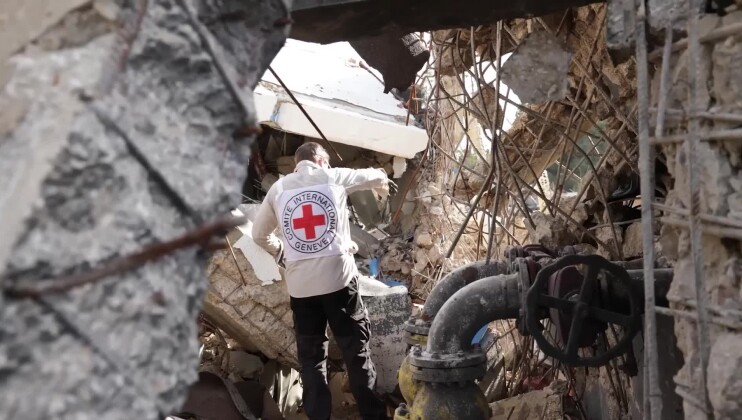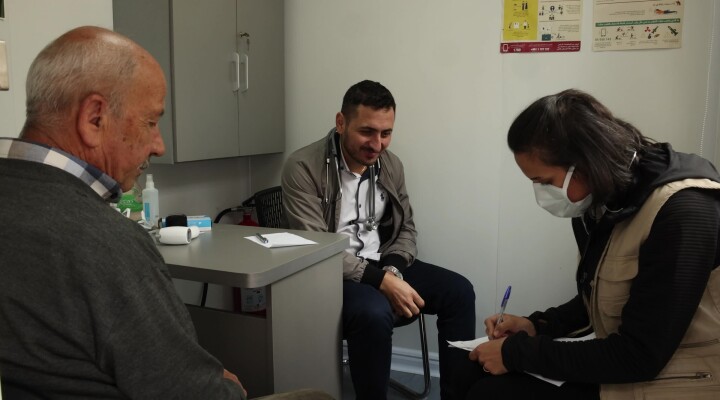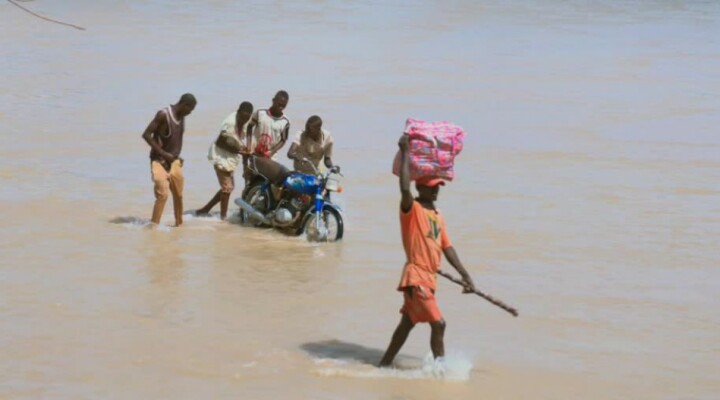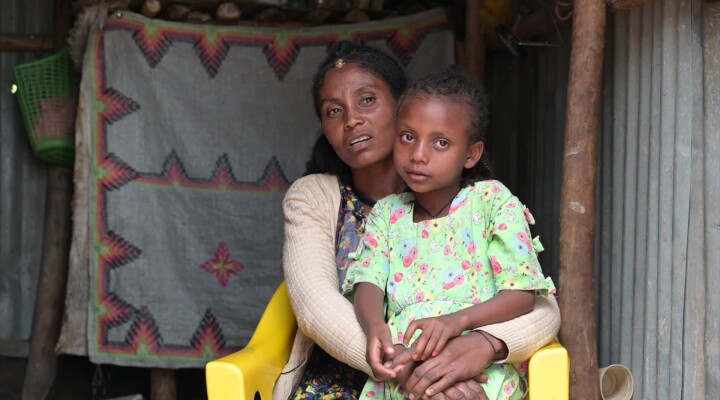Syria's Al Hol Camp: Families in Desperate Need
Everywhere in Syria, families are suffering the consequences of a conflict that is now 8 years old. In Al Hol camp that suffering is existential. Children younger than the war itself are dying, not because of bombs or shelling, but for lack of care and attention.
Just three months ago there were 11,000 people in Al Hol, and even then conditions were difficult. Now, there are more than 74,000. It is cold, and windy. The shelters are inadequate, fuel for heating is scarce. Many people, like 70 year old Um Mohammed, who has lost her only son to the conflict, arrived in Al Hol with nothing, and is now trying to care for her grandchildren.
“Everyone knows that we do not have anyone to help us” she says. “I am here with my disabled husband and seven grandchildren, and their mother who is currently looking for gas for cooking. We’ve been trying to find gas for a month.”
“We don’t have any money, not even a little. We don’t have anyone to help us.”
The ICRC, together with the Syrian Arab Red Crescent, is providing 9000 meals a day to new arrivals in Al Hol. Clean water is being trucked in, mobile health units are helping to treat the sick and wounded. But when ICRC President Peter Maurer visited Al Hol this week, the needs remained enormous.
“The stories I've heard this afternoon are really shocking,” he said. “Of children and women dying in big numbers because of all the difficulties.”
“What is of course very difficult to see is that these women and children have been in the middle of the war, they have fled the warfare, they are seriously wounded. The most difficult situation is of course to see so many orphaned children between two, three, and five years who have lost fathers and mothers.”
Of course, not all the families in the camp are Syrian. Al Hol also hosts a significant number of foreign nationals; women, and children.
“Several of them spoke to me saying they want to go home, they want their countries to care about {them}, said Peter Maurer.
“And I think it is something that these countries cannot steal {avoid} themselves out of the responsibility to look out for their citizens who are stranded here for whatever reasons, and whatever the modalities are of which they ended up here.”
Al Hol camp is no place for any child. No mother, or grandmother, should have to try to care for children in conditions like this.
“I keep my pain to myself” says Um Mohammed. “I do not cry in front of the children so that they do not feel upset. I wait until I am in bed to cry myself to sleep. Then I wake up to pray.”
“I cry for my son and I cry for the little children. What will they do? Where will they go?”
For further information please contact:
Sara ALZAWQARI, ICRC Beirut, tel: +961 3138 353
Anastasia Isyuk, ICRC Geneva, +41 79 251 93 02
Matthew Morris, ICRC London, +44 7753 809471
Frederic Joli, ICRC Paris, (+33) 6 20 49 46 30
Galina Balzamova, ICRC Moscow, (+7 903) 545 35 34
Elizabeth Gorman Shaw, ICRC DC +1 202 361 1566
Pat Griffiths, ICRC Canberra, +61 418 485 120
KEY FACTS
In Al Hol camp, together with the Syrian Arab Red Crescent society (SARC), the ICRC:
· Is providing 9,000 meals a day to new arrivals
· Is trucking in 100,000 litres of clean water a day and continuously distributing clean bottled water
· Has installed 176 toilets
· Is supporting health services: 4 more mobile health units began work in Al Hol on 19th March, bringing the total to 5.
Restoring family links
· In Al Hol and other camps, the ICRC is providing services to help people to restore or maintain links for families who have lost touch or been separated due to the conflict.
Visiting detainees
· The ICRC visits people arrested in relation to the conflict in Syria's northeast who are detained in some places under local administration. The ICRC's dialogue with actors involved in detention is confidential and is focused on the provision of essential services, conditions of detention, and treatment of detainees.






